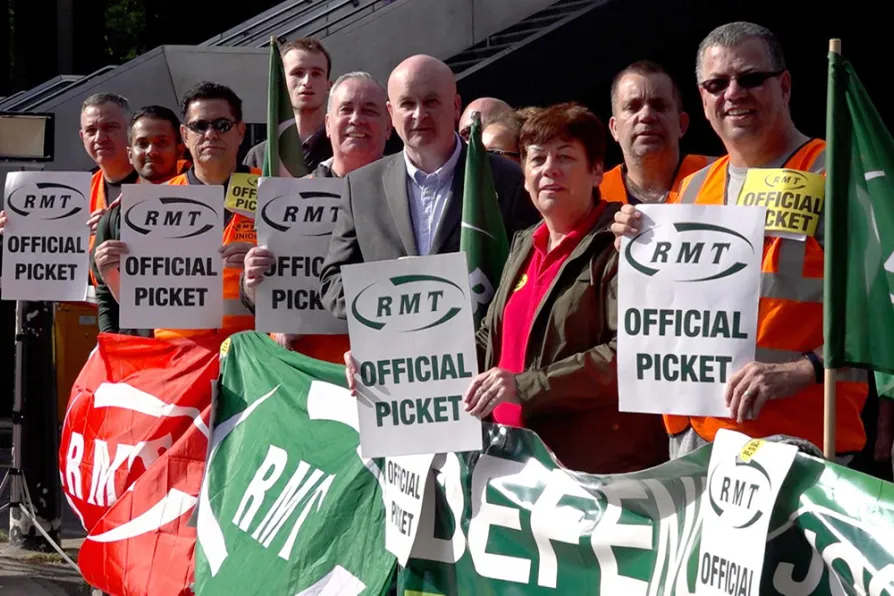The real question for Your Party, as it holds its CEC elections, will be whether shaped from above or built from below by empowered branches and a bold, uncompromising socialist programme. Mel Mullings, Riccardo la Torre and Chloe Braddock of the Grassroots Left slate set out their case

 RMT general secretary, Mick Lynch, on a picket line outside Euston station in London, June 2022
RMT general secretary, Mick Lynch, on a picket line outside Euston station in London, June 2022
THIS year’s TUC finds a trade union movement renewed, confident and most importantly, unafraid to flex its industrial muscle.
The cost-of-living crisis has escalated, with rapidly rising inflation, runaway energy prices and continued suppression of wages.
As a result, unions have started to ballot their members over pay, jobs and working conditions. And in many cases have either won disputes or begun to take industrial action.

Since 2023, Strike Map has evolved from digital mapping at a national level to organising ‘mega pickets’ — we believe that mass solidarity with localised disputes prepares the ground for future national action, writes HENRY FOWLER

Ben Chacko talks to RMT leader EDDIE DEMPSEY about how the key to fixing broken Britain lies in collective sectoral bargaining, restoring unions’ ability to take solidarity strike action and bringing about the much-vaunted ‘wave of insourcing’











